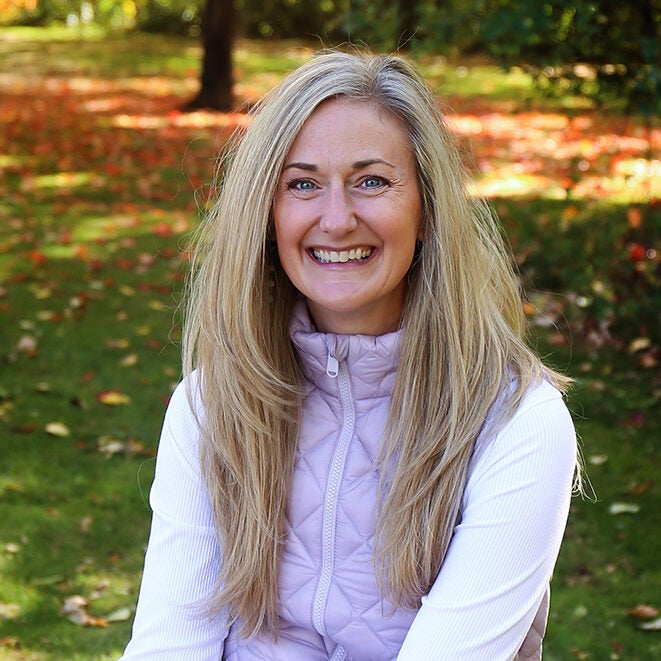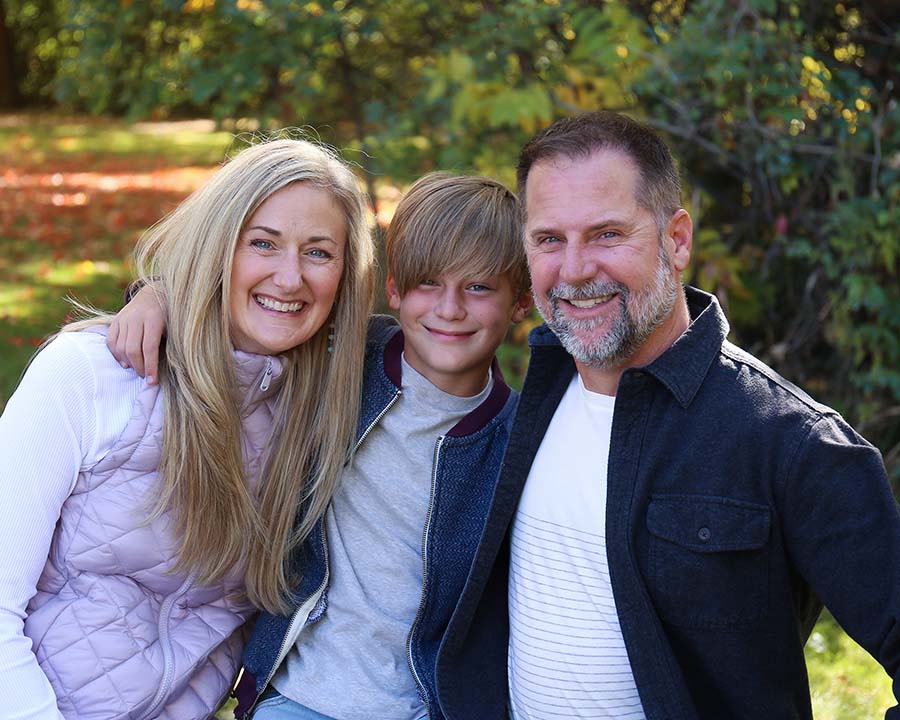Years ago, Meg Omel worked with Idaho children diagnosed with cancer and their families at Camp Rainbow Gold. While serving children and families in such a vulnerable time was very rewarding work, it also had moments of sadness and grief. On one such occasion, Omel attended the funeral of a young boy, Isaiah, who passed away due to a brain tumor. She recalled this moment as being profoundly important to her future.
“I was listening to the pastor tell stories about how this little boy lived his life, and he was so brave,” Omel said.
“It made me want to take risks. Isaiah inspired me to think about what I wanted out of life.”
Motivated by Isaiah and all of the brave kids she worked with every day, Omel felt ready to jump into the next phase of her life: graduate school.
“It fits every piece of who I am. I can’t imagine not being a social worker. I’m always a social worker, no matter my official title.”
Choosing Boise State’s social work program
Meg Omel first attended the University of Idaho and earned a bachelor’s degree in psychology. After graduating and working for a while, she kept thinking about returning for a graduate degree in social work.

The social work field felt wide open and full of possibilities to Omel, and she was attracted to Boise State’s Master of Social Work (MSW) for its generalist approach. “Some social work programs offer degree emphases to narrow your focus and that’s great, but it’s also nice to keep your options open since there’s so much you can do with a social work master’s degree,” she explained.
Omel completed her field work requirement at St. Luke’s and after graduation in 2009, she was hired as a medical social worker at St. Luke’s Children’s Hospital. In 2017, Omel was approached by a former mentor and teacher, Professor Jennifer Obenshain, to return to Boise State’s MSW program to teach as adjunct faculty. She accepted and was excited to teach the next generation of social workers. Even though Omel now works at Boise State exclusively, she still considers herself a social worker.
“It fits every piece of who I am. I can’t imagine not being a social worker. I’m always a social worker, no matter my official title,” she said.
Teaching the next generation of social workers
“I was teaching one of the very first courses in the foundation’s program. It was MSW students’ very first view of social work,” Omel described. “I loved being the first faculty interaction with students. I enjoyed their questions and helping them with their first-semester nerves. I also got to show them how and why their diverse experiences are vital to the profession.”
A field seminar class came next for Omel and allowed her to work with students on integrating their course work with what they were learning in their field placements. This thoughtful design ensures that learning is integrated between field work and classwork.
Then came an opportunity to serve as a field coordinator for the social work program.
Applying evidence-based practices in field work
“Field work is one of the most vital pieces of social work education. To take theory and put it into practice is so vitally important,” Omel said.
“Social work is complex because we work with people, and everyone is different. Students learn evidence-based practices and strengths-based approaches in class, but in practice, it can be much harder. Field work lets them work alongside professionals and apply their learning in a supportive environment. Students also practice professionalism, confront real-life ethical dilemmas and improve cultural competencies through their field work experience.”

Boise State’s MSW Online students are provided field work opportunities to apply their academic and practice experiences in the reality of the agency-client-service matrix. Through the supervised, in-person field experience, students participate in and become familiar with the many components of the social work profession and its varied roles. The ideal field placement offers students a focus on direct practice methods, policy development and implementation, and other social work special projects and research activities.
“Field work lets them work alongside professionals and apply their learning in a supportive environment.”
Field work opens minds and hearts
The best advice Omel offers her students in the field is to “keep an open mind. So many students have specific ideas and placements in mind, and we try to meet their goals, but an ideal placement doesn’t always exist,” she said.
“Trying placements that they have never thought about is a good thing — if you keep an open mind, you will gain so much. Also, treat this as a nine-month job interview. I’ve had so many students get hired at their field work agencies. I have two already in a seminar that will be hired.”
“I’m also an example of field work success. I loved working with young children but then discovered a love for the NICU and babies and mothers with postpartum depression. This was because of my field work experience.”
Learn more about Boise State’s Master of Social Work Online
Boise State Master of Social Work Online students benefit from field work coordinators’ expertise and professional experience. Fully online coursework allows students to connect with social workers across the country and complete in-person field work requirements in their local community.
Learn more about the MSW Online program by contacting a student success coach or attending a live, virtual information session.